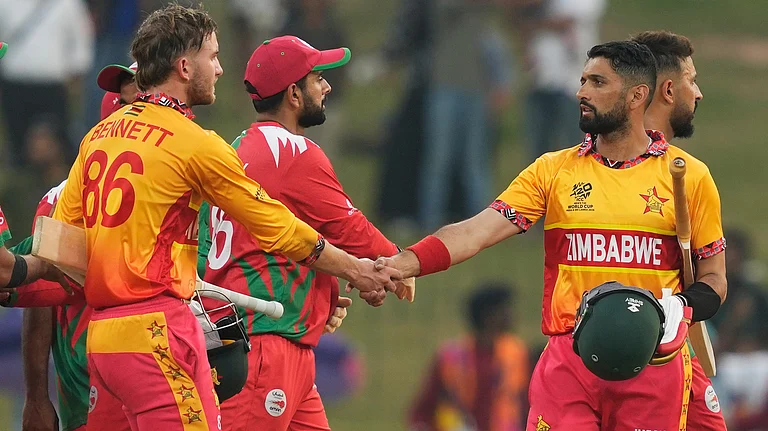There is something refreshingly old-fashioned taking place in the Himalayankingdom of Nepal: a genuine revolution. In recognition of this, the US has toldcitizens except for "essential diplomats" to leave the country,usually a good sign. Since April 6, Nepal has been paralysed by a general strikecalled by the political parties and backed by Maoist guerrillas. Hundreds ofthousands are out on the streets - several have been shot dead and more than 200wounded. A curfew is in force and the army has been given shoot-to-kill orders.
But the people have lost their fear and it is this that makes theminvincible. If a single platoon refuses to obey orders, the Bastille will falland the palace will be stormed. Another crowned head will fall very soon. Acaretaker government will organise free elections to a constituent assembly, andthis will determine the future shape of the country.
The lawyers, journalists, students and the poor demonstrating in Kathmandualso know that if they are massacred, the armed guerrillas who control 80% ofthe countryside will take the country. This is not one of those carefullyorchestrated "orange" affairs with its mass-produced placards, rah-rahgals and giant PR firms to aid media coverage, so loved by the"international community". Nor does the turbulence have anything to dowith religion. What is taking place in Nepal is different: it is the culminationof decades of social, cultural and economic oppression. This is an old story.Nepal's upper-caste Hindu rulers have institutionalised ancient customs topreserve their own privileges. Only last year was the custom of locking upmenstruating women in cowsheds declared illegal.
The Nepalese monarchy, established more than two centuries ago, has held thecountry in an iron grip, usually by entering into alliances with dominant powers- Britain, the US and, lately, India - and keeping them supplied with cheapmercenaries. It is a two-way trade and ever since the declaration of the"war on terror", the corrupt and brutal royal apparatus has beensupplied with weaponry by its friends: 20,000 M-16 rifles from Washington,20,000 rifles from Delhi and 100 helicopters from London. Meanwhile, half thecountry's 28 million people have no access to electricity or running water, letalone healthcare and education, according to the UN.
In 2005, King Gyanendra suspended all civil liberties and outlawed politics.To deal with a problem that was essentially structural, but which in the globalcontext of neoliberalism could not be solved through state intervention, hedecided on mass repression: physical attacks on the poor, concerted attempts tostamp out dissident political organisations and blanket social repression. Thechronicle of shootings, beatings, imprisonments, purges and provocations isstaggering. The sheer ferocity of his assault took the tiny middle class bysurprise and isolated the politicians.
Will the triumvirate - the US, the EU and the UN security council - try tokeep the king in power? If it does, it will have to add Kathmandu to a growinglist of disasters. Recent newspaper editorials indicate that the west fears thedisease may spread to neighbouring India. A top-level summit between theNaxalites and civil servants after the defeat of the BJP government revealed aremarkably pragmatic Maoist leadership: all it wanted was for the government toimplement the constitution and pledges contained in successive Congressmanifestos.
What the uprising in Nepal reveals is that while democracy is being hollowedout in the west, it means more than regular elections to many people in theother continents. The Nepalese want a republic and an end to the systemicpoverty that breeds violence and to achieve these moderate demands they aremaking a revolution.
Tariq Ali is an editor of New Left Review

























